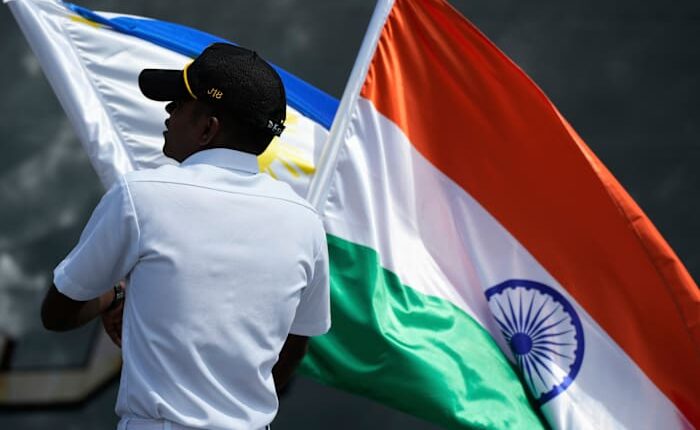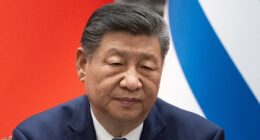Share this @internewscast.com

MANILA – For the first time, India and the Philippines have conducted joint naval drills and maneuvers in the disputed South China Sea, marking a significant military activity likely to provoke China. Both Asian democracies, India and the Philippines, face separate territorial conflicts with Beijing, alongside India’s long-standing regional competition with China.
General Romeo Brawner, the Armed Forces of the Philippines chief of staff, stated on Monday that the joint naval activities, which commenced on Sunday and lasted for two days, have been successful. He expressed optimism about future collaborations with India’s military for more joint exercises.
When questioned about any Chinese reaction, Brawner mentioned, with little detail, that there was no adverse incident, although they were monitored. “We expected that already,” he added.
The Philippine military has previously noted that during past joint patrols with other navies, Chinese navy and coast guard vessels have observed from afar.
India and China have a historical land border dispute in the Himalayas that led to a brief war in 1962 and subsequent lethal skirmishes.
Additionally, China’s vast claims over nearly the entire South China Sea, a vital global shipping lane, have caused tense encounters with other nations with competing claims, notably the Philippines and Vietnam. Malaysia, Brunei, and Taiwan also assert claims over parts of these contested waters.
The Philippines has staged naval patrols in the disputed waters with its treaty ally, the United States, and other strategic partners including Japan, Australia, New Zealand and France to promote freedom of navigation and overflight and strengthen deterrence against China.
It has allowed journalists to join territorial sea and aerial patrols to witness China’s increasingly aggressive actions, provoking angry Chinese reactions.
In response to a question last week about Manila’s plans to build up military cooperation, China’s Ministry of National Defense called the Philippines a “troublemaker” that has aligned itself with foreign forces to stir up trouble in what China deems its own territorial waters. “China never wavers in its resolve and will to safeguard national territorial sovereignty and maritime rights and interests and will take resolute countermeasures against any provocations by the Philippine side,” Defense Ministry spokesperson Col. Zhang Xiaogang said in a news conference.
Brawner said the Philippines has to boost deterrence to prevent war. “The way to do that is number one, the Armed Forces of the Philippines has to be strengthened through modernization and secondly, we need to partner with like-minded nations and that’s what we’re doing with India,” he said last week.
During a reception on board an Indian navy tanker, the INS Shakti, on Thursday, Brawner said the vessel’s port call in Manila was more than ceremonial. It “sends a powerful signal of solidarity, strength in partnership and the energy of cooperation between two vibrant democracies in the Indo-Pacific,” he said.
Brawner welcomed the deepening of relations between the two Asian countries and “reaffirmed the shared commitment to maritime security, regional stability and a rules-based international order in one of the world’s most geopolitically sensitive regions.”
Philippine President Ferdinand Marcos left Monday for a five-day state visit to India for talks with Prime Minister Narendra Modi and other top officials to boost defense, trade and investment, agriculture, tourism and pharmaceutical industry engagements.
Copyright 2025 The Associated Press. All rights reserved. This material may not be published, broadcast, rewritten or redistributed without permission.











